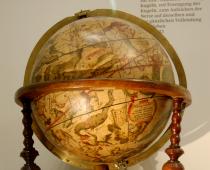Ivan Podkopaev
The Tverskoy Court of Moscow appointed 25-year-old technician Ivan Podkopaev three years in prison on charges of using violence against a government official (Part 1 of Article 318 of the Criminal Code). According to investigators, Podkopaev sprayed pepper spray towards the employees of the Russian Guard during a rally on July 27 in the center of Moscow.
Podkopaev spent eight days under administrative arrest, and after his release he was detained as a suspect in the "Moscow case." According to the case file, after the arrest, a poster, a knife, a gas mask, a flask and a hammer were found in Podkopaev's backpack. The defendant himself said that "the contents of the backpack are intended for economic purposes."
Podkopaev pleaded guilty and asked the court to consider his case in a special manner - that is, without examining the evidence. The victims did not come to the trial. “There was an incident that is hard to forget. He was on duty and the building where the watch officer was located caught fire. Due to the fact that he and several other guys were on the ship, they helped him escape,” Podkopaev’s father said about his son’s service in the army. The prosecutor requested that the accused be sentenced to three years and four months in prison.
“What are the grounds for applying the most severe punishment? Your honor, I don’t know. Why immediately deprivation of liberty to a person who has stumbled for the first time in his life and sincerely repents? I repeat once again: an absolute white, clean life up to that moment. There can be no verdict. I ask that a fine or forced labor be applied to my client, "said lawyer Nikolai Fomin.
“I didn’t have a goal to harm law enforcement officers. It so happened that among these officers were my peers, guys, conscripts, which I also once was. I sincerely apologize to them, it just so happened that we ended up in different The only thing that provoked my actions was that they took a metal fence [and began to put pressure on them] on people, among whom were women and elderly people," Podkopaev himself said in his last speech.
Danil Runaway
On Tuesday, September 3, the Tverskoy Court of Moscow also sentenced 25-year-old businessman Danil Beglets to two years in prison, an RS correspondent reports from the courtroom. The fugitive was found guilty of using violence against a policeman (Part 1 of Article 318 of the Criminal Code) during a rally on July 27 for the admission of independent candidates to the elections to the Moscow City Duma. According to the ICR, the fugitive pulled the hand of a policeman who was detaining the protesters. The defendant pleaded guilty, the case was considered in a special order.
The fugitive was detained for the first time on the day of the action. According to him, he accidentally ended up in the center of Moscow and could not leave the place of the action, because he was in a cordon. He was on his way to a work meeting when he saw that one of the detainees' headphones had fallen out. He picked them up and tried to return them, but he ended up in a paddy wagon. After a conversation with an employee of the ICR, the Fugitive was released from the police department with an administrative protocol. Two weeks later, the Investigative Committee announced his arrest, claiming that the Fugitive was wanted. The accused insisted that he was not hiding and did not receive summons.
The fugitive was also accused of participating in "mass riots", but later the investigation abandoned this article. At the preliminary hearing, he pleaded guilty and asked the court to consider his case in a special manner - without examining evidence and questioning witnesses. The victim, the commander of the platoon of the National Guard Nikitin, did not come to the court session.
“We have a joint project for the production of beds,” witness Aksyutin, a business partner of the Fugitive, told the court. “When I was choosing a companion, I met Danil and still have no complaints. Kind, open, sometimes too much, because he helps people, who don't always need help.
“My son and children need him very much. My son is two years old. I was with them yesterday. He calls dad all the time. He helped me a lot since childhood. I was left without a mother early. He did everything for me from an early age. And he is mine right hand. He grew up without a father, and his children should not grow up without a father," the defendant's mother said in court.
"When appointing, I ask you to study the nature, social danger and information about the identity of the Fugitive. He is brought to justice for the first time, committed a crime of medium gravity, is not registered, works, has positive characteristics. Of course, I ask the court to take into account that the Fugitive has a dependent civil spouse and two young children, despite the fact that the paternity of one of them has not been established. The crime is twofold. The first is the order of control. Therefore, I believe that it is impossible to make amends for the damage caused to the procedure for managing participation in the action. Therefore, I object to the dismissal of the case," the prosecutor noted. She asked to assign three years and two months to a general regime colony for the Fugitive.
The lawyer insisted on dismissal of the case and a court fine.
I went to the House of V.Ya. Bryusov, which is on Prospekt Mira, 30. There is a branch of the State Literary Museum. A. Blok, M. Gorky, M. Voloshin, V. Mayakovsky, S. Yesenin, I. Severyanin, A. Tolstoy, A. Bely have been here. A memorial office of V.Ya. Bryusov and this is a museum of literature of the Silver Age have been opened here. And I’ll say right away that for navigation in the museum, the leaders should tear off their hands to the very T-shirt. There are no explanatory plates for the exhibits... In general... None... A thin brochure is issued, which tells about the museum, but almost not a word about the exhibits.
01. In the Hall of Symbolism
Actually, Bryusov's office was closed and there was some kind of banquet in the museum, or maybe a presentation. No, maybe of course I went through the office, but I didn’t understand. There are no inscriptions anywhere. At the same time, I paid 150 rubles for entry and 100 rubles for photography. Guys, are you crazy? No, of course, the girls who were at the banquet offered me to join. But I did not come to shoot the girls, but the museum.
02. Who is this? Not a word anywhere 
The wardrobe is not guarded in any way. Went to the museum with a backpack. The caretaker began to grumble. He said that I would leave a backpack with documents and money under her personal responsibility. She did not want to be responsible for the safety of things.
03.
04.
05.
06.
07.
08. L.S. Bakst - Andrey Bely, 1907 
09. 
10. 
11. V.A.Serov - L.N.Andreev, 1907 
12. S. Malyutin - V. Ya. Bryusov, 1913 
13. L.V. Turzhansky - I.A. Bunin, 1905 
14.
15. Exposition "A.S. Pushkin and Russian Literature of the Silver Age" 
Writers of the Silver Age made a significant contribution to the study of Pushkin's work. V.Ya.Bryusov, D.V.Filosofov, B.A.Sadovsky published articles about Pushkin. Some found autographs of Pushkin's poems and letters were published in the journal "Vesy".
16.
The exposition presents paintings by K. Korovin, B. Kustodiev, L. Bruni, S. Konenkov. And again, I have to guess what is where.
17. K. Korovin - "View of night Paris" 
18. L. Bruni - Portrait of A. Akhmatova 
19.
20.
21. G. Ivanov - M. Zenkevich 
22.
23. Article in the journal "Apollo" signed by N. Gumilyov to M. Zenkevich 
24. In the photo N. Gumilyov, Lyovushka Gumilyov, A. Akhmatova 
25. B.M. Kustodiev - M.A. Voloshin, 1924 
26.
The next room is dedicated to the avant-garde artists of the 1910s. Futurism, which arose at that time, expressed the views of artists on socio-political changes in society. The center of this movement was the group of Moscow futurists "Gileya", which released in 1912 its manifesto "Slap in the Face of Public Taste", which was signed by V. Khlebnikov, V. Mayakovsky, D. Burliuk. And also released a number of poetry collections "Judges' Garden", "Dead Moon", "Three's Treasury", "Mare's Milk", "Futurist's Drum"
27.
Less radical was the Centrifuge group, which included N. Aseev, B. Pasternak, S. Bobrov, K. Bolshakov. A group of ego-futurists with I. Severyanin and K. Olimpov kept somewhat apart. These groups were joined by poets who later called themselves Imagists: V. Shershenevich, N. Erdman, I. Gruzinov, R. Ivnev. S. Yesenin joined the camp of the Imaginists for a short time.
28.
29.
30.
31.
32.
33.
34.
35.
36.
Engravings in the Bryusov House
How can one explain the fact that one era contributes to the manifestation of poetic genius, while another era gives rise to only minor poets? Why did not a single great Russian poet appear in Russia in the second half of the 19th century? And this is after the Golden Age of Russian poetry with its geniuses: Tyutchev, Lermontov, Pushkin, Fet! Tyutchev, Lermontov, Pushkin, Fet and Yazykov were born before 1820. Then, until about 1880, no great poets were born in Russia. Neither Fofanov, nor Balmont, nor Apukhtin, nor Nadson could use the experience of the geniuses of the Golden Age of poetry. Tyutchev and Fet continued to create, but they were born at a completely different time ... Really, in order to become brilliant poet, it is necessary to be born in a well-defined "favorable" era?
In 1910, the fundamental work of General V. A. Moshkov " New theory origin of man and his degeneration, compiled according to the data of zoology and statistics. This work embodied the developed by this scientist theory cyclicality historical development civilizations and cultures of the world. Each cycle, according to V. Moshkov, lasts 400 years. The four-hundred-year cycle was divided by him into four centuries, to which he gave the names: "golden", "silver", "copper" and "iron". The first half of the development cycle of a civilization or a state - the "golden" and "silver" ages, that is, the first two hundred years - is characterized by its development and growth, culminating in an era of political and economic stability. But with the onset of the second half of the cycle - the "copper age" or the third century in the cycle - countries enter a period of decline. The "Iron Age" - the last 100 years, completing the cycle - the era of losses and losses for any country, the age of cultural decay. Moshkov, apparently, used the teachings of the one who lived at the beginning of the 7th century. BC. Hesiod's rhapsod, set forth by him in his poem "Works and Days" Translated by V. Veresaev, Moscow: Nedra, 1927). For example, in 1212, the unification of the Russian principalities under the rule of Yaroslavl, and then Moscow, began, that is, a 400-year cycle began in the history of Russia. This cycle ended in early XVII century Troubles and the invasion of the Latins.
After 1612, we are witnessing a steady increase in the sovereign power of Russia! The “Golden Age of Catherine” corresponds to the “Silver Age” of the four-hundred-year cycle. This is the era of political and economic stability in Russia.
So, based on Moshkov's theory, Tyutchev, Lermontov, Pushkin and Yazykov were born in the "Silver Age" of the four hundred year cycle! Moreover, they were born at the turn of eras - during the peak of the cultural development of Russia. In 1812, Russia defeated the combined military forces of the West. In 1815, Alexander the Blessed was recognized as the Emperor of Europe, and therefore of the whole world! The very energy of that time could not but affect those who lived then in Russia.
What happened to those born after about 1820? What happened after 1820 in the history of Russia?..
The "Copper Age" began to influence those who were born at that time ... The era of "smerdyakovism" was advancing. It was then that the lines written by the Russophobe Pecherin appeared:
How sweet it is to hate the homeland,
And eagerly await its destruction!
And see in the destruction of the homeland
World hand of rebirth!
After 1920, Russia "ceded" to Britain and the USA HALF OF THE TERRITORY OF NORTH AMERICA. The people of Russia do not know about this ...
Russian poets of the second half of the 19th century seem to have lost their creative powers.
Here is an example of V. Solovyov's work:
Michal Matveich dear,
I am writing to you from the cavern,
Bent from an ailment with an arc
And full of filth.
Forgotten sweet labors
And Bacchus and Cyprites;
For a long time my butts have been telling me
Some hemorrhoids.
As a child, V. Solovyov played firefighters and wanted to accomplish a feat, so he could not help writing this work in his mature years:
DepA fire officer
Woe is raised above the ashes
And, like an eagle - a resident of the ether,
Endowed with an all-seeing eye.
He is alone on this peak,
He is above all, he is a god, he is a king...
And down there, in the fetid mud,
Like a worm, the goldsmith drags, -
Terrible for a tender heart
Contrast of cloaca and depA...
Humble yourself! The law of nature is clear
Though our wisdom is blind.
The sun goes down, the sun comes up
Centuries are running, but everything is like old,
A proud knight walks on the tower
And the goldsmith cleans the pit.
Mid April 1889
[Soloviev V. S. "Only the sun of love is motionless ..." Poems. pp. 55-56]
But in these lines, as V. Solovyov believed, there is also some significant thought ... Undoubtedly, Solovyov is only an outstanding poet of Russia, but not a great one.
V. Solovyov could not bypass the theme of the East in his work:
YOUNG TURK
On the tenth day moharemma
Dad's in the garden
I met a harem flower
And since then I've been waiting
Waiting in the garden impatiently
I wash my gazelle...
But papa watches jealously
All their mamsells.
Call, no wonder the old eunuch
Shilom picking
And to a bag of heavy steam
Tied stones.
I have to be careful...
I'd rather leave.
That way you can stay
daddy's pond!
Yes! papa is very stubborn
old retrograde,
And the nimble eunuch watches
Dad's helicopter.
Mid April 1889
[Soloviev V. S. "Only the sun of love is motionless ..." Poems., S. 56)]
Only an outstanding Russian poet appears in Russian poetry and Nekrasov. Nekrasov uses ambivalent laughter in almost all of his poems. We can say that he simply abuses them. My opinion about Nekrasov became quite definite after reading this poem:
Covering the skin with clothes
For laughter and beauty
Mazurochka with monkeys
The dogs are dancing.
And I myself am drunk in a minute,
By passion or need,
Organ grinder with a monkey
They dance padede.
Everything jumps, everything worries,
It's like a masquerade.
And the Russian people admire:
"How the Germans are cunning!"
Yes, their knowledge is strong,
Their dexterity is tricky...
Really,
Germany is a learned country!
Having written this, Nekrasov, apparently, stamped his foot, clapped his hands and started dancing ... Didn't he understand how ugly his poem came out?
And here is what a person needs, according to Nekrasov, in order not to look ridiculous:
The lights were lit in the evening,
The wind howled and the rain drenched,
When from the Poltava province
I entered the capital city.
In the hands was a long stick,
The knapsack is empty on her,
Sheepskin coat on the shoulders,
There are 15 groszy in my pocket.
No money, no title, no tribe,
Small in stature and ridiculous in appearance,
Yes, forty years have passed,
I have a million in my pocket.
Nekrasov successfully described only confusion and confusion, but even this brought to the point of absurdity:
Look - they've got it!
Roman hits Pakhomushka,
Demyan hits Luka.
And two brothers Gubina
They iron Prov hefty, -
And everyone screams!
Seven owls flocked,
Admire the carnage
From seven big trees
Laugh, midnighters!
And their eyes are yellow
They burn like burning wax
Fourteen candles!
And the raven, the smart bird,
Ripe, sitting on a tree
By the fire itself
Sits and prays to hell
To be slammed to death
Someone!
Cow with a bell
What has strayed since the evening
From the herd, I heard a little
human voices -
Came to the fire, tired
Eyes on men
I listened to crazy speeches
And began, my heart,
Moo, moo, moo!
[Nekrasov N.A. Who is good in Russia. Fav. cit., p. 312]
In 1990 - the beginning of the Silver Age of Russian poetry. The vast majority of poets did not reach the level of Fofanov in terms of creative skill... The Silver Age did not initially raise topical social issues. Members of the St. Petersburg group of poets "Gilea" became the founders of Russian futurism. One of the directions of this era was also cubo-futurism. In Russia, the Budetlyans, who were part of the Gileya poetic group, called themselves Cubo-Futurists. They refused aesthetic ideals past, actively used occasionalisms. Within the framework of cubo-futurism, “abstruse poetry” developed. Zaumya was written by Velimir Khlebnikov, Elena Guro, Davyd and Nikolai Burliuk. Here's an example of "smart":
Your flickering lamp
I am illuminated by the forest silence.
Oh rider of the night, dance
Before an unshakable fence.
golden-breasted wife
At a barely closed entrance.
Warm cold nature
Signing his letters.
Blind diligent glances.
Let's substitute domes for rain.
I burned my chest to the ground
To tear out the ramifications of evil,
In the name of truth and reward.
Hugs of white burning honeycombs.
Desirable subtle tunes,
But still, rather than the Black Maiden
Smashing inevitably honey.
[Burliuk D.D.: From the collection "The Judges' Garden" (1910)]
"Gilea" was the most influential, but not the only association of futurists. There were also ego-futurists, led by Igor Severyanin, who lived in St. Petersburg.
Self-admiration is a common occupation of poets of this era:
Millions of female kisses -
Nothing before the honor of the gods:
And Klyuev kissed my hands,
And Fofanov fell at his feet!
Valery wrote to me first,
Asking how I like him;
And Gumilyov stood at the door,
Tempting into the Apollo.
Thirteen books of three hundred pages
Newspaper clippings - my way.
I accepted, looking radiant,
Praise and scolding - little people dregs.
Correct and arrogant
Always in love with the Unclear,
Confident in my calling
I saw life as a wonderful dream.
I know the thunder of applause
Dozens of Russian cities
And the ecstasy of searching,
And the triumph of my poetry!
January 1918
Petrograd
[Severyanin I.V.: Nightingale. Poems and poems, p. 9]
- In contact with 0
- Google Plus 0
- OK 0
- Facebook 0








